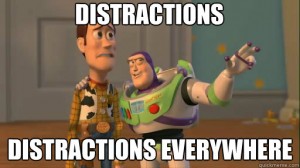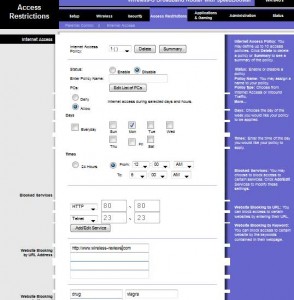I love comics. And one webcomic in particular has hit the top of my list: Girl Genius, by Phil and Kaja Foglio. (If you haven’t tried it, go here. I’ll wait.)
All of which is prelude to this review of the first volume of the novelization of the comic: Agatha H. and the Airship City, by Phil and Kaja Foglio, published last year by Night Shade Books. (Note that the authors are the same creative team that produce the webcomic.)
First, what it is: the whole Girl Genius story universe is a fantasy/steampunk extravaganza, laid in what appears to be an analog of late 19th or early 20th century Europe, if you squint your eyes really hard. There are all kinds of glorious brassy machines of all sizes, incredible monsters of all descriptions, and mad engineers all filled with the Spark, which enables them to create all of these crazy beasts and contraptions. So it reads a bit like a three-way mash-up of The Prisoner of Zenda and Jules Verne and The Three Stooges. Slapstick, oh my. And Murphy’s Law appears to be a universal constant in this universe also: whatever can go wrong, will. And at the worst possible moment.
High hilarity is the result.
Now my experience of novelizations of original visual and graphic works has been very disappointing in the past. But I finally broke down and read this one, and was very pleasantly surprised. Perhaps because it was written by the creative team that writes the comic instead of by some outsider “adapting” the comic, it captures the flavor of the comic very well. It does an astonishingly good job of telling the webcomic story arc that it parallels. And almost all of the balancing-on-a-high-wire suspense and riding-a-speeding-car-down-the-mountain-road-with-no-brakes pacing makes the transition to text extremely well.
Second, what it isn’t. It’s not dark, or depressing, or grim. It gets a little tense from time to time, and it’s a little bloody, but most of the blood is green, so that doesn’t count. It’s just a lot of fun. I think we need to be reminded as writers that not everything we write has to be apocryphal, apocalyptic, or tragic. There’s a place in the market for books like this, and kudos to the Foglios for writing it and to Night Shade Books for publishing it.
There’s not much of a way to tell you more about the story itself without committing major snerks, so let me just say that underneath the fun is some well-plotted writer’s craftsmanship.
Okay, so what did I as a writer find illuminating about the writer’s craft in this book?
First of all, I think it’s an excellent model of how to maintain a high energy breakneck pace in a long story. It’s 264 pages long in hardback, and when I closed the cover I felt like I’d been on a killer roller coaster ride. I think we could all get some pointers from that. The writers just never let up on the pace.
Second, as mentioned above, even missing the mugging and double-takes possible in the comic, it’s still genuinely hilarious. And it’s consistent in its humor as well, which is much harder to do than you might think, especially in a novel-length work. I’ll be looking back at it for some hints on how to handle humor, as well.
Third, a negative lesson: there is a class of characters in the story who are presented to the reader with a heavy generic Eastern European/Russian accent spelled phonetically. I stumbled over this. I’d have to stop and sound out the words to figure out what they were saying. This reinforced in me the teaching I first got from one of L. Sprague deCamp’s essays, that dialect and accents need to be treated very carefully, otherwise it can interfere with the readability of the story. If they had it to do over again, I would suggest to the Foglios that they lighten up on the dialect. But with 11 years of producing the comic behind them, it’s a bit late for that. Nonetheless, that was my only problem, and it wasn’t nearly enough to make me quit reading.
To wrap it up, all in all a well-crafted and enjoyable read, suitable for adults and YA as well.
Enjoy!
P.S. – The sequel, Agatha H. and the Clockwork Princess has just been released, also from Night Shade Books.





